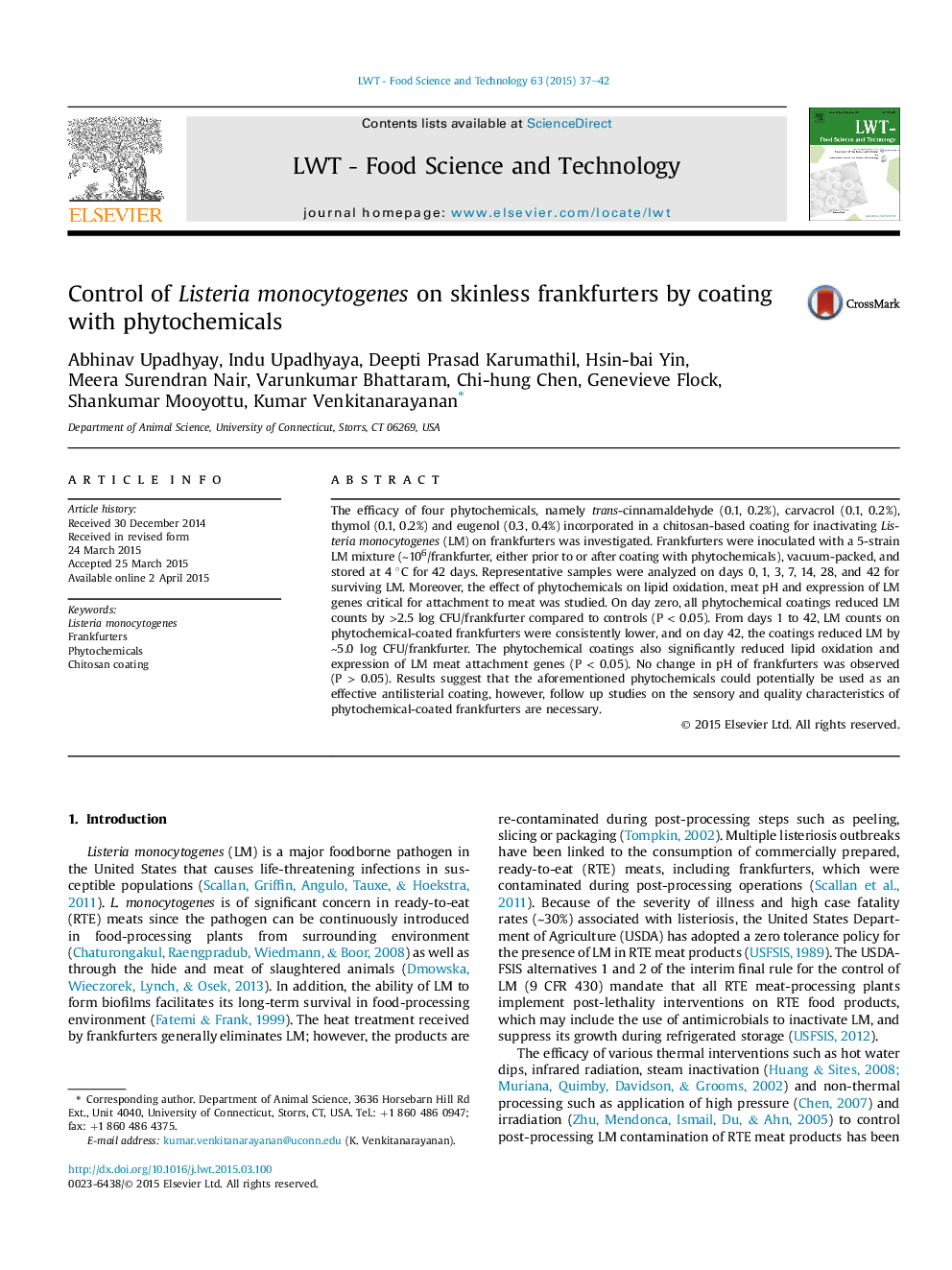| Article ID | Journal | Published Year | Pages | File Type |
|---|---|---|---|---|
| 6401979 | LWT - Food Science and Technology | 2015 | 6 Pages |
â¢On day 0, all phytochemical coatings reduced LM by >2.5 log CFU/frankfurter.â¢On day 42, all phytochemical coatings reduced LM counts by >4 log CFU/frankfurter.â¢Phytochemical coating decreased lipid oxidation on frankfurter.
The efficacy of four phytochemicals, namely trans-cinnamaldehyde (0.1, 0.2%), carvacrol (0.1, 0.2%), thymol (0.1, 0.2%) and eugenol (0.3, 0.4%) incorporated in a chitosan-based coating for inactivating Listeria monocytogenes (LM) on frankfurters was investigated. Frankfurters were inoculated with a 5-strain LM mixture (â¼106/frankfurter, either prior to or after coating with phytochemicals), vacuum-packed, and stored at 4 °C for 42 days. Representative samples were analyzed on days 0, 1, 3, 7, 14, 28, and 42 for surviving LM. Moreover, the effect of phytochemicals on lipid oxidation, meat pH and expression of LM genes critical for attachment to meat was studied. On day zero, all phytochemical coatings reduced LM counts by >2.5 log CFU/frankfurter compared to controls (P < 0.05). From days 1 to 42, LM counts on phytochemical-coated frankfurters were consistently lower, and on day 42, the coatings reduced LM by â¼5.0 log CFU/frankfurter. The phytochemical coatings also significantly reduced lipid oxidation and expression of LM meat attachment genes (P < 0.05). No change in pH of frankfurters was observed (P > 0.05). Results suggest that the aforementioned phytochemicals could potentially be used as an effective antilisterial coating, however, follow up studies on the sensory and quality characteristics of phytochemical-coated frankfurters are necessary.
